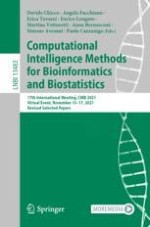2022 | OriginalPaper | Buchkapitel
The Need of Standardised Metadata to Encode Causal Relationships: Towards Safer Data-Driven Machine Learning Biological Solutions
verfasst von : Beatriz Garcia Santa Cruz, Carlos Vega, Frank Hertel
Erschienen in: Computational Intelligence Methods for Bioinformatics and Biostatistics
Aktivieren Sie unsere intelligente Suche, um passende Fachinhalte oder Patente zu finden.
Wählen Sie Textabschnitte aus um mit Künstlicher Intelligenz passenden Patente zu finden. powered by
Markieren Sie Textabschnitte, um KI-gestützt weitere passende Inhalte zu finden. powered by
